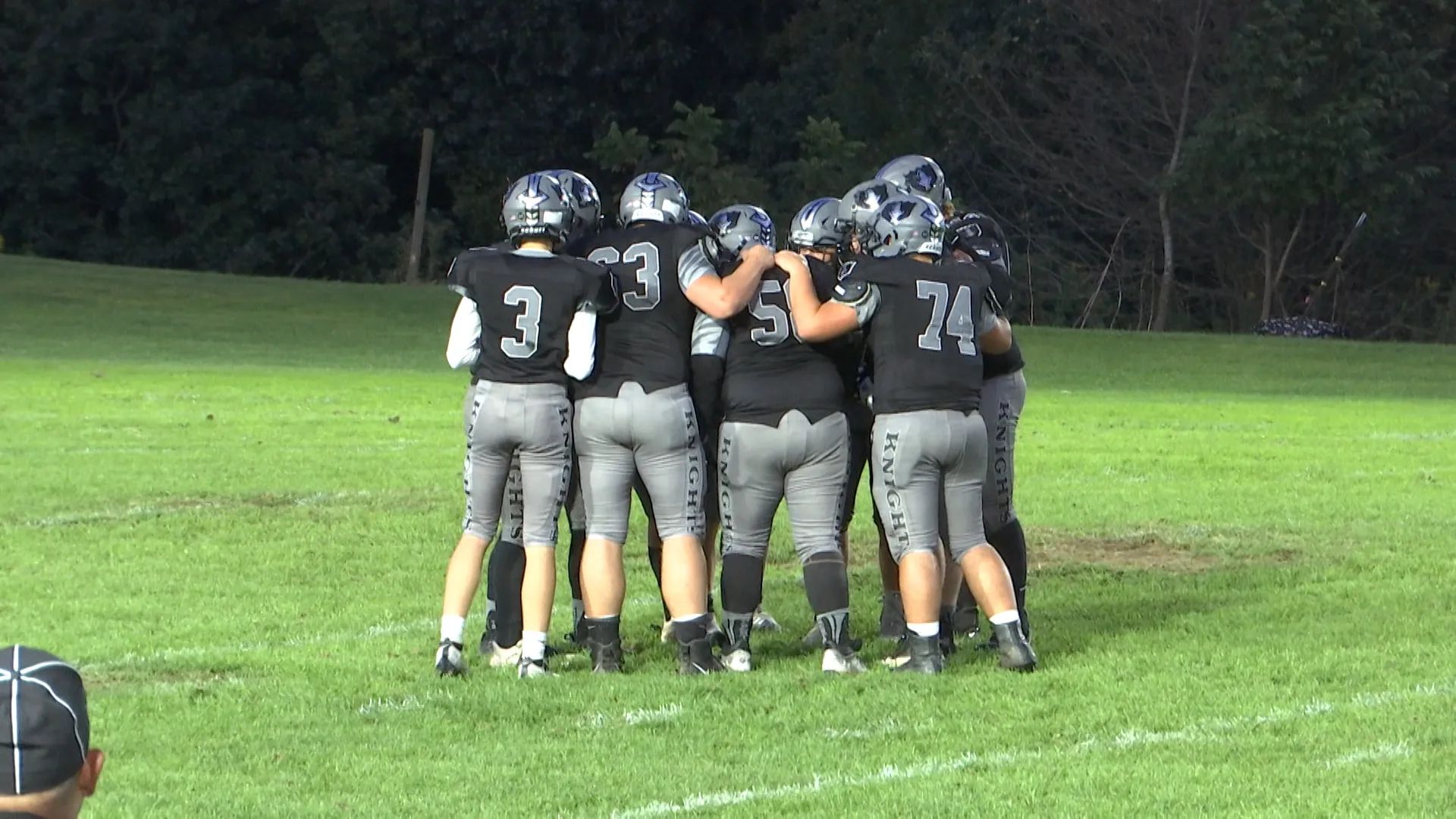In a remarkable show of compassion, unity, and leadership beyond the gridiron, an Ohio high school football team has captured the hearts of many by trading playbooks for shovels and drills. The team made headlines this week after canceling football practice to travel across state lines and assist with flood relief efforts in West Virginia, where severe rainfall has devastated multiple communities, displacing families and destroying homes.
For the players of this high school team, whose name is now being spoken with admiration in both Ohio and West Virginia, the decision wasn’t difficult. While many high school teams this time of year are focused on training, conditioning, and executing plays to gain an edge for the upcoming season, this group of young athletes turned their attention to something far more important: humanity.
It all began when the coaching staff received news that a West Virginia town about two hours from their Ohio hometown had been ravaged by historic floods over the weekend. Rivers overflowed, roads collapsed, and entire neighborhoods were submerged. In the aftermath, emergency responders struggled to reach certain areas, and local volunteers were overwhelmed trying to deliver aid, clear debris, and provide temporary shelter for affected families.
Upon hearing of the disaster, the team’s head coach gathered his players in the school auditorium instead of the weight room. What happened next is now being described as a defining moment in their season—not because of a game, but because of a decision. The coach posed a question to his team: “What does leadership mean to you? Is it just about wins and losses? Or is it about being there for people who have no one else?”
The room went quiet, but the response came not in words, but in action. Players began raising their hands. One after another, they volunteered to help. Within minutes, the entire team was on board. Practice was canceled, and plans were quickly made to head to West Virginia early the next morning.
Parents, community leaders, and school administrators rallied behind them. Local businesses donated bottled water, work gloves, power tools, and even vans to transport the team and their equipment to the flood site. Teachers postponed tests and assignments, recognizing the deeper education these students were about to receive—one in character, empathy, and civic responsibility.
When the team arrived in the affected area, they were met with scenes that could break even the toughest among them. Mudslides had swallowed backyards. Furniture and personal belongings were strewn across streets. Elderly residents, some still in shock, stood outside damaged homes trying to salvage what little remained. The air carried the smell of damp wood, gasoline, and despair.
But what stood out more than the destruction was the gratitude on people’s faces as they saw help arriving. Not from the National Guard. Not from emergency services. But from a group of teenagers in cleats and jerseys, ready to work.
The players divided into teams—some clearing debris from roadways, others hauling ruined furniture from homes. A few worked alongside Red Cross volunteers setting up temporary food and supply stations. Several linemen used their physical strength to carry sandbags and reinforce weak levees along the riverbanks in case of additional rainfall.
These weren’t ordinary tasks. They weren’t glamorous. But they were urgent. And the players attacked them with the same intensity and teamwork they normally reserve for fourth-quarter drives. For hours on end, they worked with blistered hands and muddy uniforms. No one complained. No one asked when it would be over. They were there to serve, and they did just that.
One powerful moment came when a sophomore wide receiver spent nearly an hour with an elderly woman who had lost everything. He sat with her on a front porch that was barely standing, simply listening as she recounted her memories of the home. He held her hand as she cried. When it was time to leave, she whispered, “Thank you for reminding me that there’s still good in the world.”
Another player, a senior linebacker known for his fierce presence on the field, gently helped a disabled man retrieve a photo album from a flooded basement. The man told him it was the only thing he truly cared about. The player returned with it, muddy but intact. The two embraced, tears streaming down both their faces.
As word of the team’s efforts spread, media outlets from both states began reporting on the story. Photos of the team hard at work went viral. Messages of support flooded social media. Alumni of the school beamed with pride. Colleges and universities even took notice—not just of the players’ athleticism, but of their character.
But the players didn’t do it for attention. They weren’t chasing headlines or scholarships. They were chasing something much more intangible: purpose. In a time when high school sports can often be clouded by pressure, egos, and competition, this team offered a shining example of what sports should really be about—community, heart, and selflessness.
When the team finally returned to Ohio after two grueling days of flood relief work, they were greeted with a hero’s welcome. But the players didn’t see themselves as heroes. If anything, they felt they had gained more than they gave. They spoke of feeling humbled, grounded, and inspired. Several mentioned that helping those families had changed their outlook on life and what it means to truly make a difference.
The coaching staff said it was the proudest moment of their careers. “We always talk about building young men who will be leaders in their communities,” the head coach said. “Well, this week, they didn’t just talk about it—they lived it.”
In the days following their return, the school announced a fundraising campaign led by the team to continue supporting flood victims in West Virginia. T-shirts bearing the words “More Than A Game” and “Ohio to West Virginia: One Team, One Heart” were printed and sold, with all proceeds going directly to relief efforts. The campaign has already raised thousands of dollars and continues to grow.
The team has also been invited back by community leaders in West Virginia to attend a special appreciation ceremony later this summer. They plan to return—not just to be honored, but to keep helping. Because as several players have said, “This isn’t just something we did once. This is who we are now.”
Perhaps the most beautiful part of the story is how it has sparked a chain reaction. Other high school teams across Ohio and neighboring states have begun organizing similar volunteer missions. Coaches have reached out, asking how they can get involved. What began as one team canceling practice to help strangers has become a movement.
In a world often divided, where differences can feel magnified and cynicism runs high, this Ohio football team proved that kindness, unity, and action still hold power. They reminded us all that greatness isn’t always measured in yards gained or touchdowns scored. Sometimes, it’s measured in lives touched, hope restored, and the quiet strength of choosing to serve.
This story won’t be remembered for a final score. It will be remembered for a team that decided the most important victory was one not earned on the field, but in the hearts of those they helped. For these young athletes, it turns out the greatest season of their lives began not with a game, but with a choice to put people first.
And in that choice, they showed us what true champions look like.



